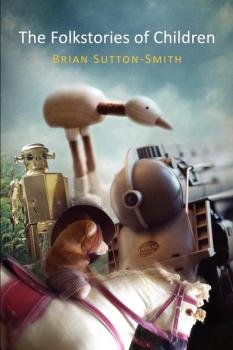Publications of the American Folklore Society
Скачать книги из серии Publications of the American Folklore SocietyThe Folkstories of Children
What prompts children to tell stories? What does the word «story» mean to a child at two or five years of age? The Folkstories of Children , first published in 1981, features nearly five hundred stories that were volunteered by fifty children between the ages of two and ten and transcribed word for word. The stories are organized chronologically by the age of the teller, revealing the progression of verbal competence and the gradual emergence of staging and plot organization. Many stories told by two-year-olds, for example, have only beginnings with no middle or end; the «narrative» is held together by rhyme or alliteration. After the age of three or four, the same children tell stories that feature a central character and a narrative arc. The stories also exhibit each child's growing awareness and management of his or her environment and life concerns. Some children see their stories as dialogues between teller and audience, others as monologues expressing concerns about fate and the forces of good and evil. Brian Sutton-Smith discusses the possible origins of the stories themselves: folktales, parent and teacher reading, media, required writing of stories in school, dreams, and play. The notes to each chapter draw on this context as well as folktale analysis and child development theory to consider why and how the stories take their particular forms. The Folkstories of Children provides valuable evidence and insight into the ways children actively and inventively engage language as they grow.
Women's Folklore, Women's Culture
The essays in Women's Folklore, Women's Culture focus on women performers of folklore and on women's genre of folklore. Long ignored, women's folklore is often collaborative and frequently is enacted in the privacy of the domestic sphere. This book provides insights balancing traditional folklore scholarship. All of the authors also explore the relationship between make and female views and worlds. The book begins with the private world of women, performances within the intimacy of family and fields; it then studies women's folklore in the public arena; finally, the book looks at the interrelationships between public and private arenas and between male and female activities. By turning our attention to previously ignored women's realms, these essays provide a new perspective from which to view human culture as a whole and make Women's Folklore, Women's Culture a significant addition to folklore scholarship
The Terror That Comes in the Night
David Hufford's work exploring the experiential basis for belief in the supernatural, focusing here on the so-called Old Hag experience, a psychologically disturbing event in which a victim claims to have encountered some form of malign entity while dreaming (or awake). Sufferers report feeling suffocated, held down by some «force,» paralyzed, and extremely afraid. The experience is surprisingly common: the author estimates that approximately 15 percent of people undergo this event at some point in their lives. Various cultures have their own name for the phenomenon and have constructed their own mythology around it; the supernatural tenor of many Old Hag stories is unavoidable. Hufford, as a folklorist, is well-placed to investigate this puzzling occurrence.




